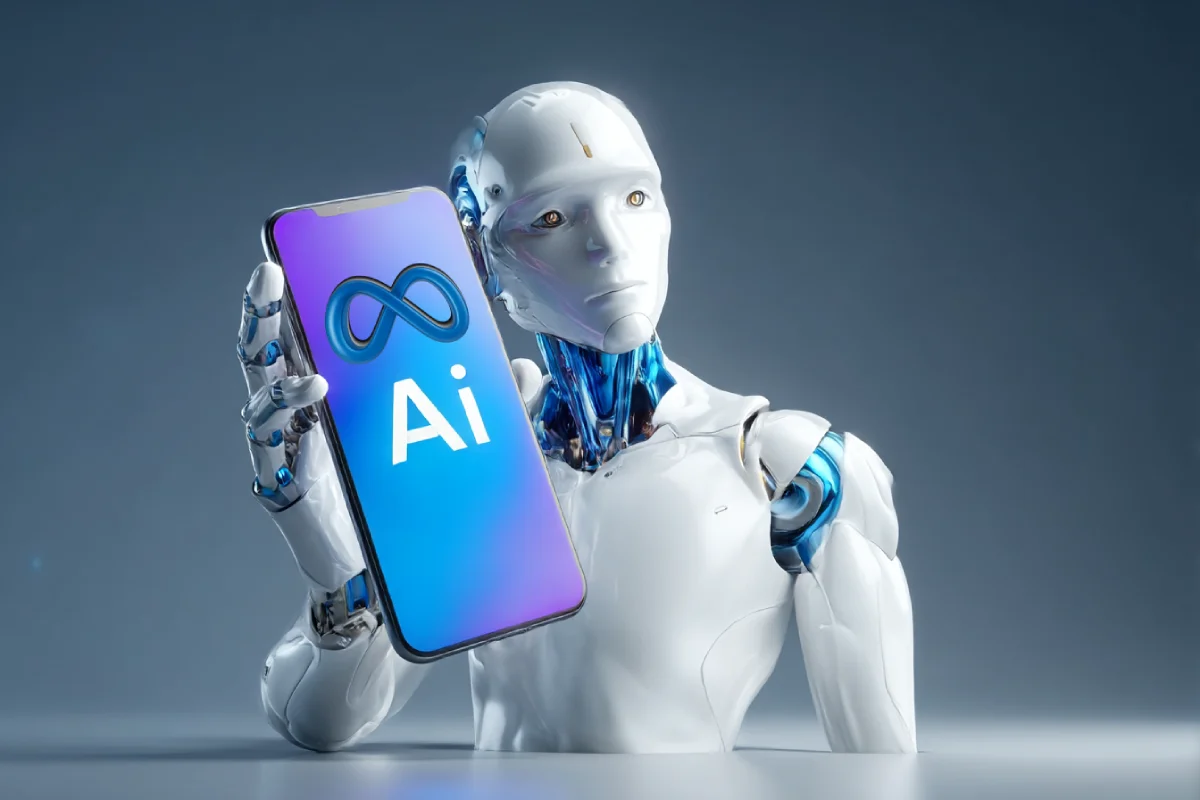Meta AI 2026 – How Facebook Is Redefining Our Digital Reality
In recent weeks, social media users have witnessed a subtle yet transformative shift — Meta AI has been quietly integrated into Facebook, Instagram, and Messenger, with a standalone app now available. But beyond convenience, this innovation raises critical questions about identity, privacy, and algorithmic control. So what exactly is Meta doing — and why should we care today?

Image: ZenoFusion AI Studio / Meta AI on Mobile – The Future of Human-Machine Interaction
The Standalone Meta AI App – A Bold Return?
In May 2025, Meta unveiled the Meta AI App — an independent platform powered by LLaMA 3 and LLaMA 4 models. While Meta AI is already built into Facebook’s messaging tools, the real innovation lies in its voice assistant mode. Unlike traditional chatbots, this one runs on full-duplex interaction, allowing users to speak fluidly and receive live responses in real time.
The app also introduces a surprising social element — a "Discover" feed that publicly showcases user interactions with the AI. These AI chats, once private, now surface as posts — turning personal reflections into a sort of digital performance.
“Discover Feed” – Social Innovation or Privacy Breakdown?
Within days of launch, the Discover feed sparked controversy: hundreds of public posts revealed deeply personal, religious, or emotional content. Many users had no idea their conversations were being shared. According to the Washington Post, users shared confessions about anxiety, heartbreak, or spirituality — unaware that their messages were now on public display.
The lack of clear in-app communication about this feature led outlets like Wired and TechCrunch to call the app a “privacy disaster.” In effect, it exposed what was once considered private space on Facebook to the public eye.
Where Is Meta Taking Facebook and Instagram?
Meta’s long-term plan is clear: by 2026, both Facebook and Instagram will run on AI-driven infrastructure. That includes everything from your feed and ads to user behavior and messaging. CEO Mark Zuckerberg envisions a network where AI predicts what you want to see, how you might feel, and what content you'll interact with — all before you even realize it.
As reported by The Verge, Meta has invested over $14 billion into Scale AI to train even more powerful models. Following LLaMA 4, Meta is reportedly working on next-gen systems codenamed Scout, Maverick, and Behemoth — pointing toward a future of hyperintelligent systems embedded in everyday digital life.
Powerful Innovation — or Unseen Control?
Meta AI may represent a breakthrough in user experience, but it also highlights gaps in transparency and consent. Many users are unknowingly surrendering intimate information to a machine — and that information may no longer be confined to private space.
So we are left with one central question: Where does convenience end — and control begin? If Facebook governs the algorithm, and the algorithm curates our digital lives, then who’s really in control of what we see, feel, and choose?
✍ Tornike, Content Strategist at ZenoFusion – June 17, 2025
✍ Article Author
- Registered: 27 April 2025, 10:30
- Location: Georgia




 Tornike
Tornike